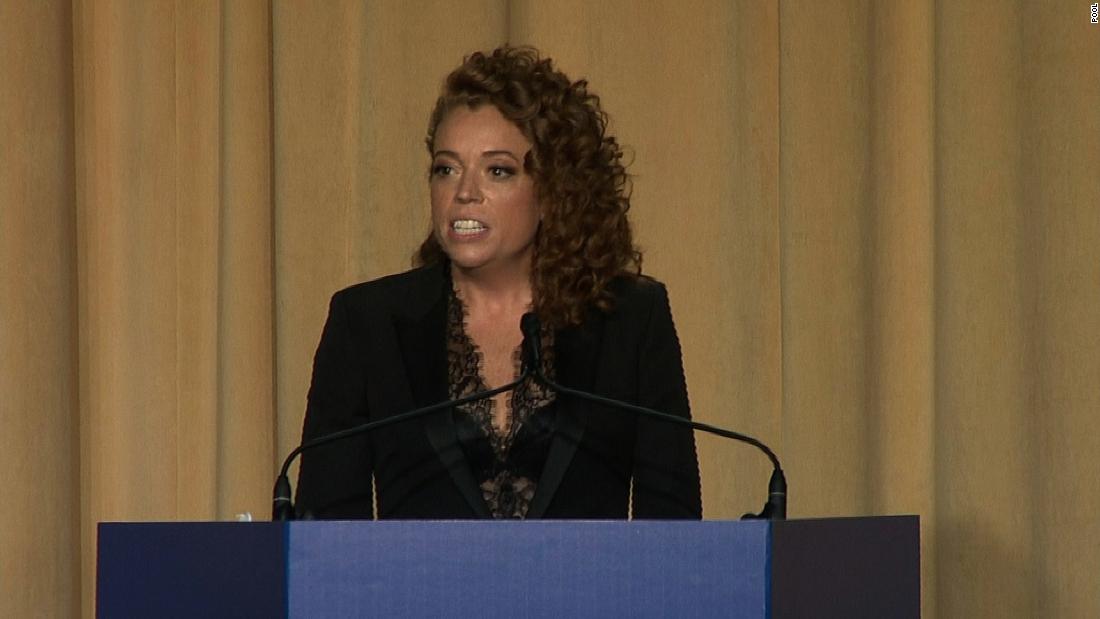
The knee-jerk reaction by many was that the WHCA was essentially knuckling under to President Trump, after he skipped last year's event and comic Michelle Wolf made headlines by flaying those who were in attendance, including White House press secretary Sarah Sanders.
That ignores, however, a long history of headaches surrounding the correspondents' dinner -- dating way back before Trump -- which has made comedians commiserate about that showcase being about the least hospitable room imaginable, which might explain why A-list names have long shied away from the gig.
As for the press, the evening has represented a delicate balancing act, one in which the idea of collegially rubbing elbows with the people they cover for one night -- in a "We're all this together" manner -- has opened them to accusations of being too cozy with them, particularly in these hyper-partisan times.
The signature moment might have come in 2006, when then-Comedy Central host Stephen Colbert skewered George W. Bush with the president in attendance. It was a performance that Colbert's boss Jon Stewart described as courageous -- while deriding those in the media who expressed surprise that Colbert would do "what he did every night on television" -- but critics called disrespectful.
The press, though, had already come under fire two years earlier for laughing along during Bush's comedy material, which included jokes about the weapons of mass destruction that his administration didn't find when it invaded Iraq. Small wonder that the room stiffened when Colbert took the press to task by accusing them of serving as stenographers for the administration, saying of White House announcements, "Just put 'em through a spell check and go home. Get to know your family again."
Since then, the dinner has become one of those damned-if-you-do, damned-if-you-don't situations for its organizers. In 2007, for example, they were mocked for hiring impressionist Rich Little as the entertainment, seen as a conspicuously safe, vanilla-flavored response after the heat Colbert brought upon them.
The intervening years largely got by on the fact that President Obama (and perhaps more to the point, his writers) were adept at crafting jokes for him to deliver in that setting, making him the night's clear headliner.
Even then, the comedians who performed -- including a number from Comedy Central, but also NBC's Seth Meyers -- frequently found the propriety of their routines questioned, such as Larry Wilmore using a variation on the N-word to close his coolly received set in 2016.
In a post-mortem interview with the Washington Post, Wilmore conceded, "I lost the room early," but added that he was "thrown" by the fact the media figures he lampooned didn't seem willing to laugh at themselves -- another tradition, frankly, which hasn't reflected particularly well on the attendees.
Simply put, the White House Correspondents' Dinner has become such a thread-the-needle challenge for comedians and the organization -- which will inevitably have to defend what they say -- that it made little sense to continue that tradition. Whatever the entertainment value, it wasn't worth the grief.
After Wolf's performance, incoming WHCA president Olivier Knox told Politico he "hoped the dinner would be 'boring,'" shifting the focus back to the press and its vital role.
Unless the president has an unexpected change of heart about the event, the result of skipping the comedy act will likely be a dinner that will be less newsworthy, entertaining or worth televising. But in terms of a change likely to avoid the strange minefield that this annual ritual has become -- and yes, even being boring -- to borrow a phrase associated with an aforementioned former president, mission accomplished.
Bagikan Berita Ini














0 Response to "Lowry: A 'boring' White House Correspondents' Dinner feels like the right call"
Post a Comment